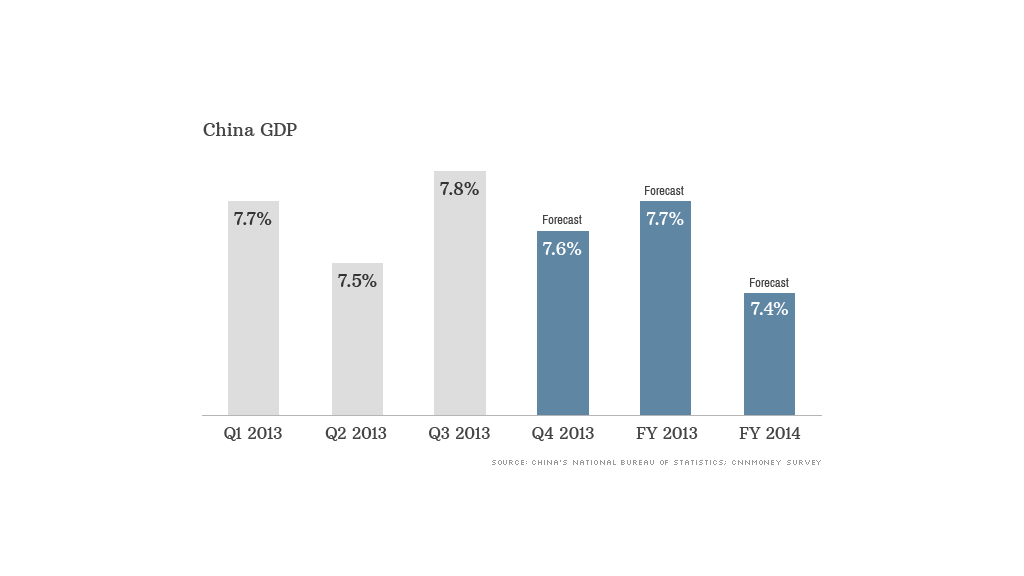
China's economy grew at a faster pace last year than the government's official target, according to a CNNMoney survey of economists.
Gross domestic product grew by 7.7% in 2013 over the previous year, according to the survey's median estimate -- stronger than the government's target of 7.5%. But overall, China's economy is slowing after recording 7.8% GDP growth in 2012 and 9.3% in 2011.
The economists estimated growth in the final quarter of 2013 slowed to 7.6% following a 7.8% peak in the third quarter. The Chinese government will announce official data on Jan. 20.
Related story: Inside China's $2.2 trillion budget
Looking ahead for 2014, GDP growth is expected to slow to 7.4%, according to the survey.
"Most activity and spending indicators, from imports, industrial output and investment to the manufacturing PMIs, suggest that economic momentum has peaked," said Qinwei Wang of Capital Economics.
The pace of China's GDP growth is the most comprehensive gauge of the country's economic health -- an important number to monitor as the government works to bring about stability after decades of runaway expansion. As part of efforts to find more sustainable growth, the government introduced last year a wide range of reforms that tackle everything from fiscal policy to family planning standards.
Economists think the reforms are necessary for China, but putting the plan into action won't be easy and gains may not be reflected in the economy for years.
Related story: China's booming business of burials

How changes are implemented, and the order in which reforms are introduced, will determine whether or not there is any impact on the economy, said Wang Tao of UBS.
An emphasis should be placed on reforming state-owned enterprises and fiscal policy first, she said. If done successfully, Wang said the reforms could keep China's annual economic growth at 6% to 7% over the next decade.
Other experts are less optimistic. Nomura economists said some of the government's plans still remain vague, and more significant reforms are needed to reduce dependence on state-backed businesses.
Related story: China pledges greater role for markets
The surveyed economists said that China's economy continues to face a number of threats, with credit growth and local government debt topping the list. Reining in credit could lead to an unexpected liquidity squeeze, while expansion could also spell disaster.
"With the rapid development of interbank and other 'shadow' credit activities in recent years, the task of managing liquidity and credit conditions has become increasingly difficult," said UBS's Wang.


